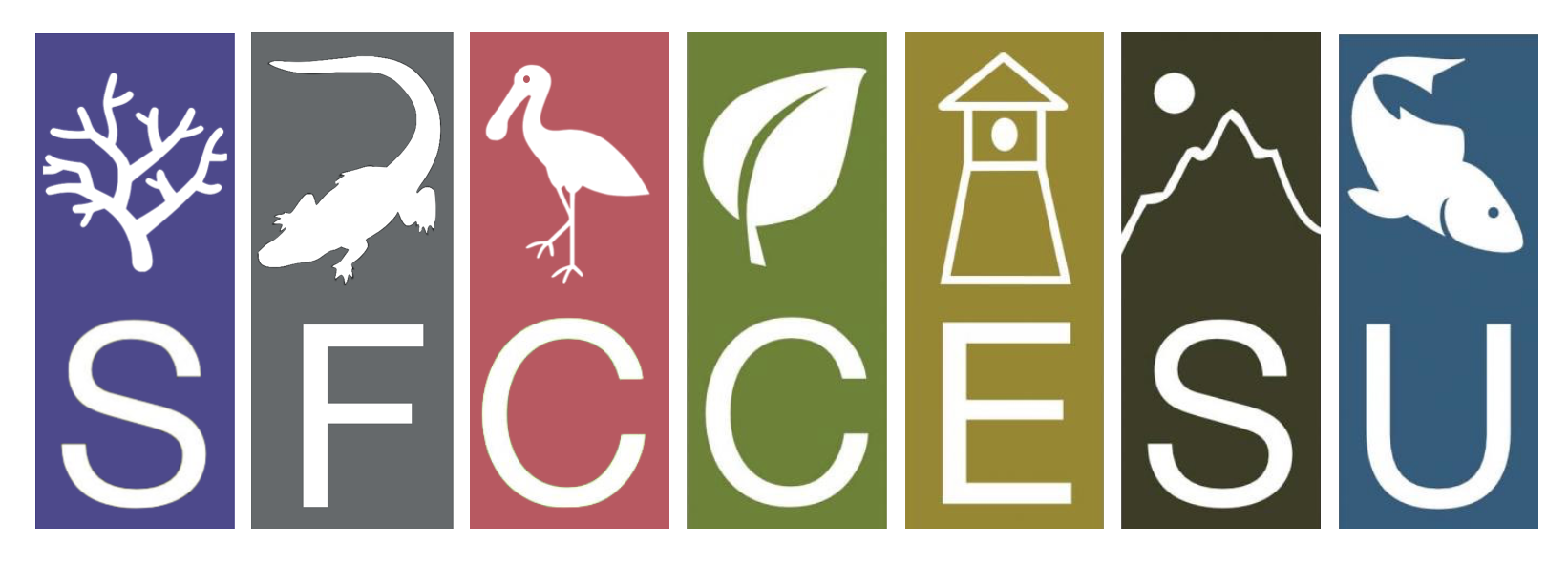ANNOUNCEMENT OF PLAN TO SOLICIT PROPOSALS
FOR THE CRITICAL ECOSYSTEM STUDIES INITIATIVE (CESI)
PROGRAM AT EVERGLADES NATIONAL PARK
TO BE ANNOUCED IN FEBRUARY 2017
Announcement of a pending request for proposals
The South Florida Natural Resources Center of Everglades National Park (ENP) is planning to post an announcement to Regional CESU Networks (Gulf Coast, South Florida-Caribbean, Piedmont-South Atlantic Coast, Chesapeake Watershed, and North Atlantic Coast), soliciting proposals that address scientific questions and issues associated with restoration and management of ENP and the Greater Everglades ecosystem. This announcement does not represent a guarantee of available funds or obligate ENP to any further action. A detailed announcement of our programmatic interests, requirements, and procedures for proposal submission will be posted in the near future. The questions and issues of interest are currently classified within a set of up to six topics.
1. Everglades Restoration actions along ENP boundaries (Tamiami Trail and eastern boundary). Ongoing water management changes are altering exchanges of water, nutrients, and other materials across ENP boundaries. ENP will be seeking proposals to increase our understanding and ability to forecast effects of changing water management and wetland hydrologic conditions on nutrient loading; the transport, fate, and effects of new and existing (“legacy”) nutrients; wetland community and ecosystem change; and the effectiveness of managing seepage from ENP into adjacent developed areas.
2. Florida Bay and coastal wetlands. ENP will be seeking proposals related to understanding and forecasting coastal ecosystem status and dynamics and the effects of upstream water management (including restoration actions), fire management, sea-level rise, and climate change. Key questions and issues regard Florida Bay’s current seagrass die-off and phytoplankton (cyanobacteria) blooms, coastal wetland responses to an expanding zone of salinization, storm event effects, current and future water management effects, and indirect and interactive effects of fire management. This encompasses assessing salinity change and associated biogeochemical and ecological effects on soils and plant communities, including exotic invasive species.
3. Exotic Invasive species. We will seek proposals that inform and support ENP’s effort to quantify and understand the dynamics and effects of exotic invasive species and improve methods for Early Detection and Rapid Response (EDRR). Issues of interest include plant community and soil risks associated with invasions of Schinus, Lygodium, and other exotic species; impacts on critical habitats, such as tree islands and coastal prairies; and invasive animal species EDRR research.
4. Biodiversity and rare, threatened and endangered species. Restoration as well as large-scale threats, including climate change, sea-level rise, and invasive exotic species, can directly and indirectly influence biodiversity and the dynamics and fate of threatened and endangered species. We will seek proposals to increase understanding of historic, current and likely future dynamics and the roles of tree islands and other habitats in sustaining biological diversity and rare species.
5. Cultural Resources. We will seek proposals focused on the value and influences of historical or current cultural practices on ecological structure and processes that define key aspects of the Everglades ecosystem. This includes analysis of the historic human use of tree islands and influence of this use on tree island ecological structure and function. It also includes developing novel approaches to integrating Traditional Ecological Knowledge into ENP’s resource management strategies.
6. Ecosystem Services and Human Ecology. ENP will invite proposal focused on the analysis the interactions and dependencies of ENP and adjacent built communities, especially with considerations of water management, restoration, climate change and sea-level rise. This may include analyses of ecosystem services and their valuation. We also seek to explore new and innovative ways to engage and share understanding with the human population of southern Florida, with an intention on promoting stewardship-based perspectives and mutually beneficial management actions.
Questions about the announcement can be addressed to:
David T. Rudnick, Ph.D.
Science Coordinator
South Florida Natural Resources Center
Everglades National Park
950 N. Krome Ave.
Homestead, FL 33030
david_rudnick@nps.gov
